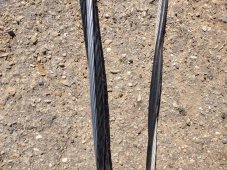Checkthisout
Solar Wizard
- Joined
- Nov 14, 2021
- Messages
- 5,211
LED lights are much more prone to flicker then incandescent lights. so there is that ...
He's not talking about flickering, he says they dim for a split second. Candles flicker, they don't go dim for a second.



